By Kate Robertson, Epicure & Culture Contributor
Canadian winters aren’t for everyone. Although fabulous for skiing and snuggling up in front of the fireplace, many people prefer to head south to warmer climates. But those cold winters are perfect growing conditions for icewines, making Canada the leading producer in the industry.
The first commercial “eiswein” was made in Germany about 200 years ago. Canada jumped on board in the 70’s, and has been able to consistently produce quality “icewine” (this spelling is a Canadian trademark) since then.
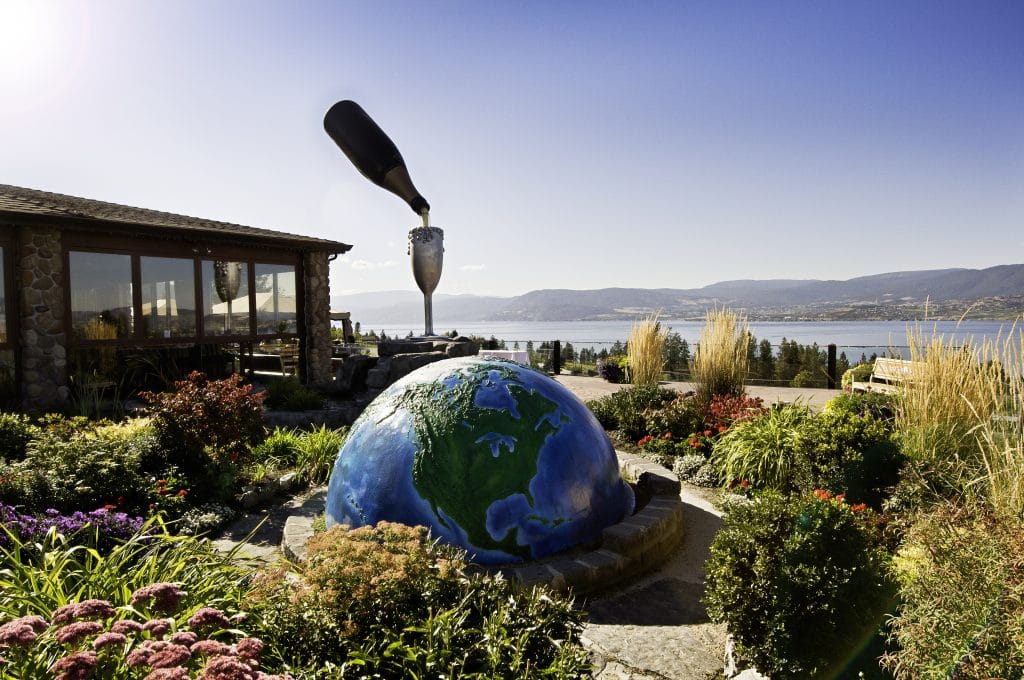
Putting Biodynamic Growing Methods On The Map
One producer in Kelowna, British Columbia, Summerhill Pyramid Winery, is putting organic and biodynamic growing and producing on the map by creating award-winning icewines. Summerhill Pyramid Winery is the largest certified organic winery in Canada, British Columbia’s first Demeter-certified biodynamic winery, and a member of David Suzuki’s Blue Dot movement, a movement recognizing Canadians’ rights to clean air and water with a vision to transition the entire Okanagan Valley to 100% organic by the year 2020.
Check out how this award-winning Canadian #winery is using #biodynamics to change the world! #Canada Click To Tweet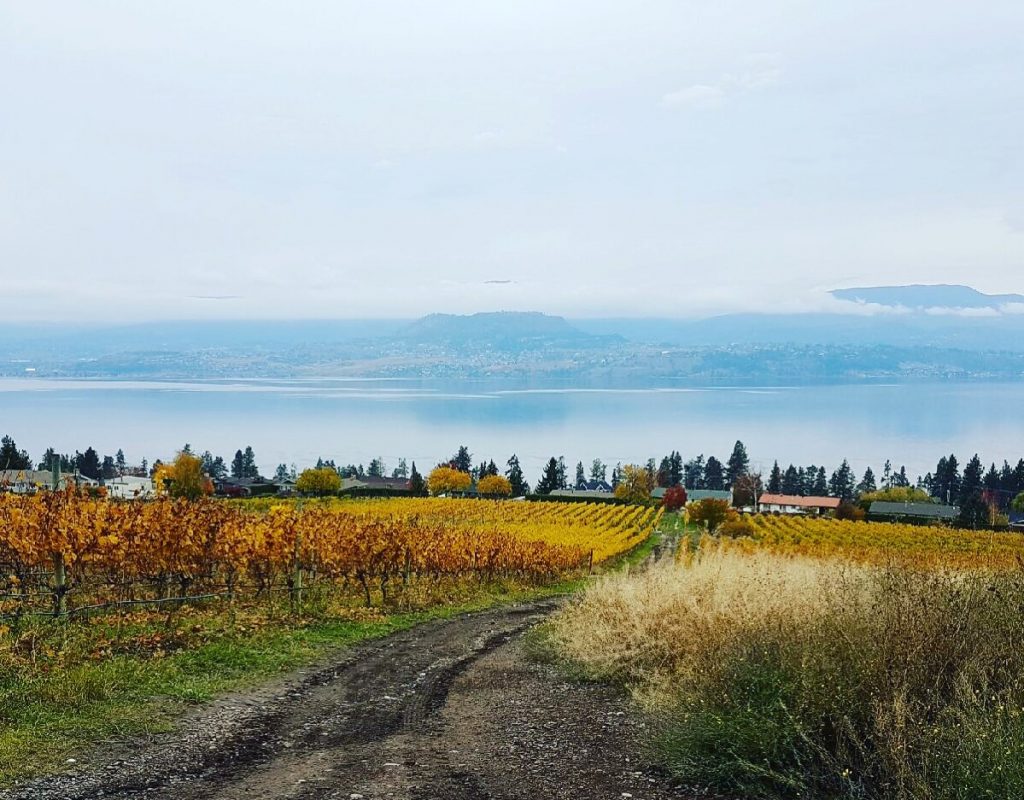
Visiting Summerhill Pyramid Winery
I breathe in the earthy composting smell of autumn and appreciate the beauty of this landscape with its stunning backdrop of the Okanagan Lake. As we walk through bright yellow and orange grapevine rows, Summerhill’s CEO, Ezra Cipes, fills me in on the winery. I learn that this location is more than just a pretty picture, as the lake is an integral part of the Okanagan wine “terroir” (the natural environment which affects the taste of the wine), and keeps the ambient temperature regulated through the seasons. “We have more hours of summer sunshine here than in the Napa Valley,” advises Ezra, “but our growing season is shorter.”
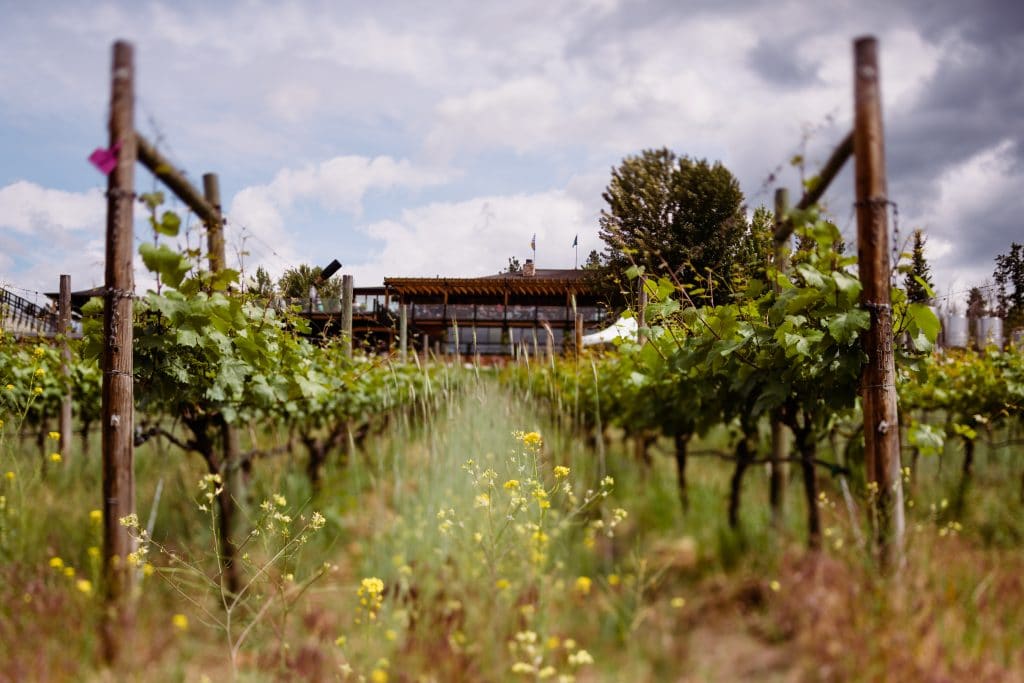
As the stroll through the vineyard continues, Ezra points out a permaculture garden (there is another one close to the restaurant where vegetables and herbs are grown to supply it), designed by his brother, Gabe Cipes, who is in charge of biodynamics and permaculture. Exmaplins Ezra, “We let grass and natural foliage grow between the vine rows, rather than mowing, which allows all of the regular living insects and organisms to do their thing.”
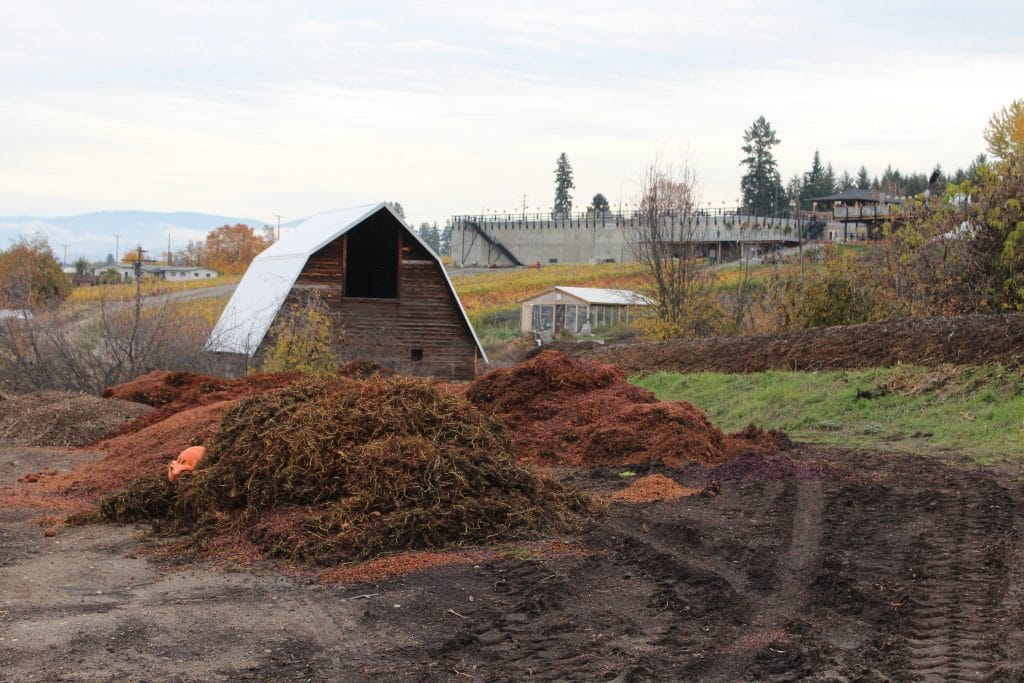
Next we stop at some large piles of compost, which Ezra proudly describes as the very foundation of the operation. These piles of “black gold” are made from kitchen and vineyard waste, and imbued with biodynamic preparations like yarrow, chamomile and other herbs frequently used in medicinal remedies. The practice of biodynamics is much more than simply avoiding artificial chemicals. It is a method of organic growing that treats farms as unified and individual organisms, emphasizing balancing the development and interrelationship between soil, plants, and animals.
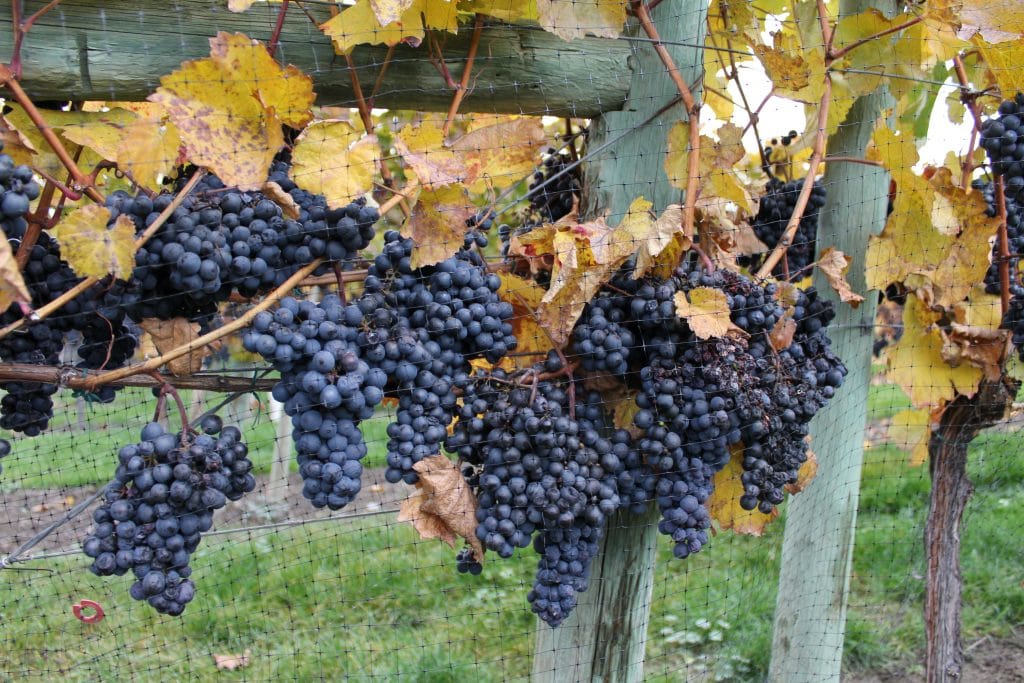
The Perfect Icewine Harvest
At this late time in the season, most vines are bare, except those where grapes for icewine remain hanging. Here, Ezra leads us through row after row of deep purple bunches of Zweigelt grapes, a red varietal from Austria, covered with netting. For icewine especially, netting is essential as birds love the sweet delicacies.
“The end of November is the ideal harvest time, as about 25% per month is lost when grapes are still hanging, due to desiccation and birds. The growers watch for a forecast where the temperature drops to -8C, and then pickers who are on stand-by are called in.”
“In 2015, it happened on New Year’s Eve,” says Ezra, “which created a scramble to find enough pickers to get the crop harvested. Then the fruit is immediately pressed while frozen.”
The freeze intensifies the sugar level and flavor profile of the grape. The sugars do not freeze, but the water does. “Because icewine is the only dessert wine without noble rot (a fungus that changes the flavor),” explains Ezra, “the varietal character of the grape is what you get. For example, with Riesling, you get citrus, apple, stone fruits—and these notes stay in the icewine.”
This is what I love about icewine. Despite its high sugar content, icewine is not cloyingly sweet, but rather refreshing, due to the high acidity. Alcohol is generally between 8-13%, with a full body and a long-lingering finish.
Did you know #Canada is the top producer of #icewine? Check out how cool this #winery is! Click To Tweet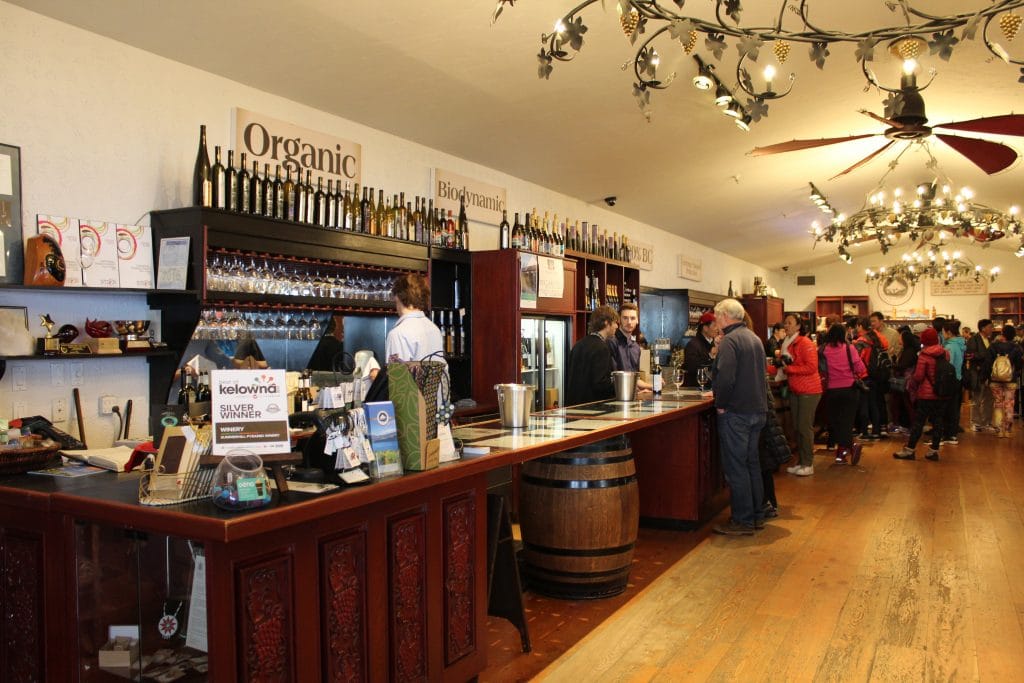
Of course, a winery tour is not complete without a tasting. For this, we enter a tasting room with one of the longest bars I’ve ever seen, supported with oak wine barrels and handsome wooden cabinets with bas-relief carvings of grapes. Our bartender, Harry, who confesses his favorite to be the Zweigelt because of “its balance and less sweetness”, sets up a tasting in order of sweetest to driest: Chardonnay, Semillon, Merlot, and the Zweigelt.
I declare my favorite the Semillon (a white grape from Bordeaux that Sauterne is made from), which truly does look like golden nectar, with a honey-like sweetness and fruity flavor. I savor the slightly viscous mouth-feel.
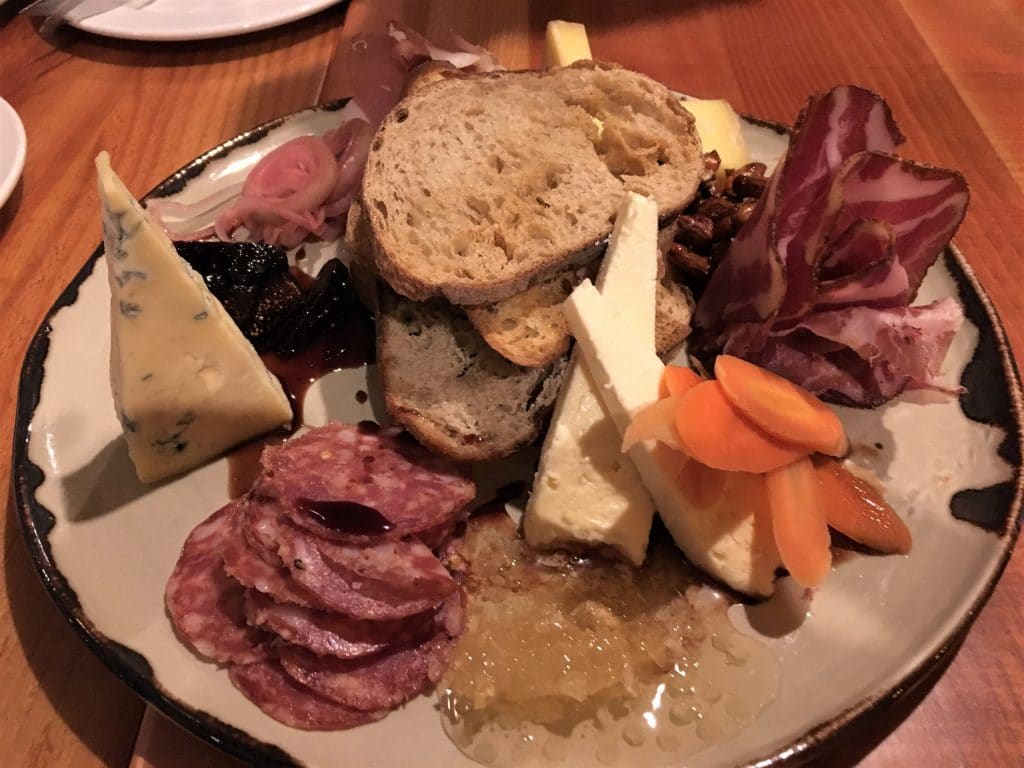
More Than Just Icewine
The evening dinner at Summerhill’s Sunset Bistro provides another opportunity to sample not only delicious wine, but incredibly tasty food prepared by Chef Alex Lavroff. His locally sourced ingredients mesh nicely with the organic, biodynamic theme of the vineyard. “I don’t mess with the ingredients,” Chef tells me. “We use only the best ingredients and I keep it simple. I play a lot with citrus notes, and don’t use heavy demi-glaces or sauces. I prefer to keep it light.”
We start with a glass of Blanc de Blanc (their signature award-winning sparkling chardonnay) and the cheese and charcuterie board, filled with local cheeses and meats, pickled veggies, merlot figs, and the vineyard’s own orange blossom honeycomb (which has to be tasted to be believed), before moving on to gnocchi with wild mushrooms and grilled albacore tuna.
The crowning finish to the day is an array of tasty, sweet desserts. My favorite is the smooth, creamy panna cotta. It’s paired with the Zweigelt icewine, and this time, without the comparison of sweeter whites, it becomes be my new favorite.
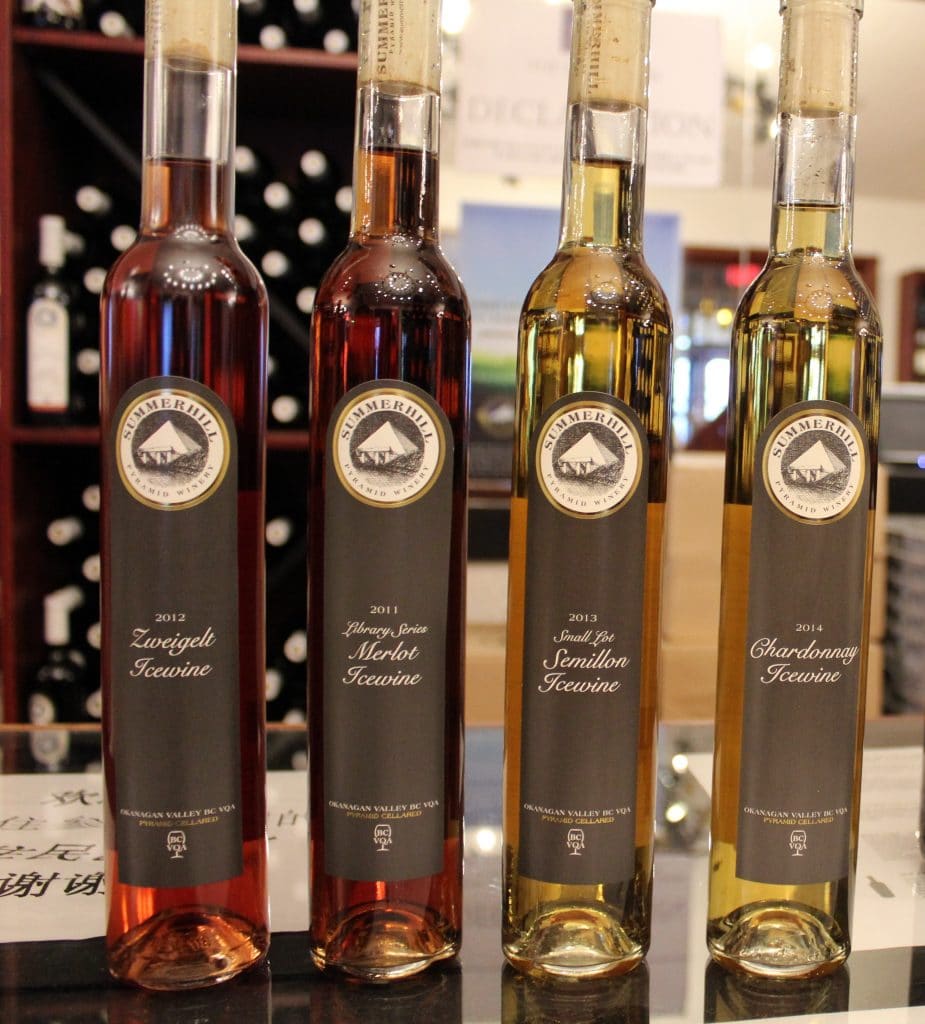
Since my visit, Summerhill has made waves at the 2017 international Chardonnay du Monde competition in France, where they took top place for Best Chardonnay with their icewine, a real victory for organic, biodynamic growing and producing. Let’s hope this leads the way for more vineyards to switch to organic, biodynamic production.
Kate Robertson
Latest posts by Kate Robertson (see all)
- How To Indulge In Turkey’s Delicious Culinary Culture - Jan 11, 2018
- How To Have A Sustainable (And Fun!) Trip In Charlottetown, Canada - Oct 9, 2017
- How To Help The Planet By Drinking Icewine - May 24, 2017
- How To Explore Phoenix’s Sustainable Food Culture - Apr 17, 2017
- Why Cape Breton Island Has the Most Delicious Lobster In The World - Jan 9, 2017

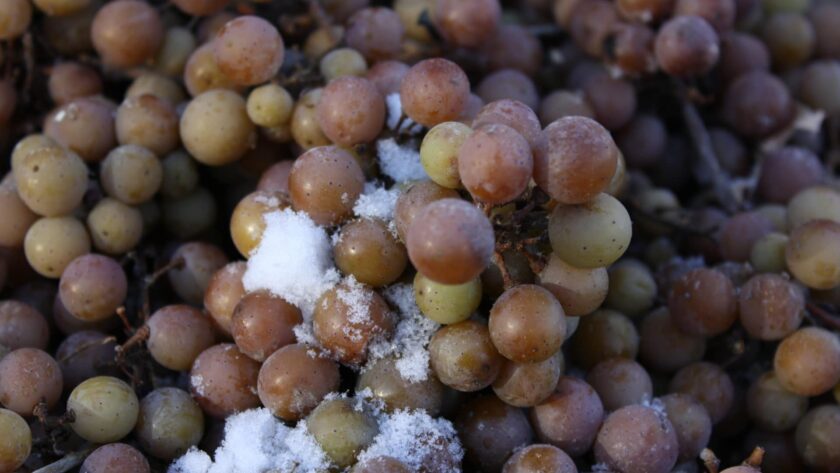
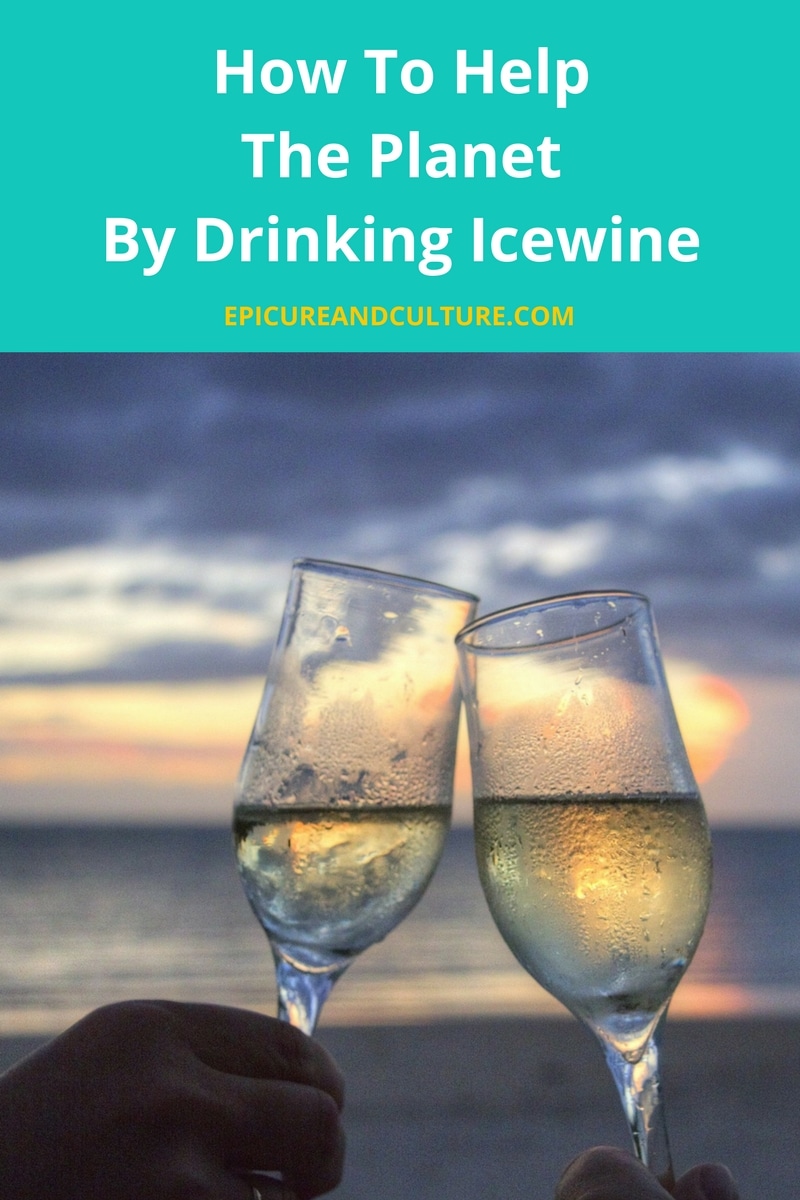
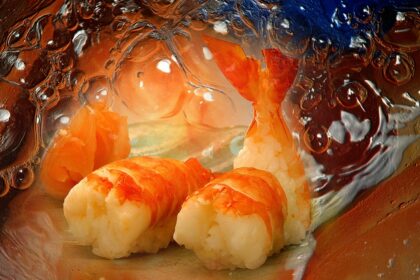
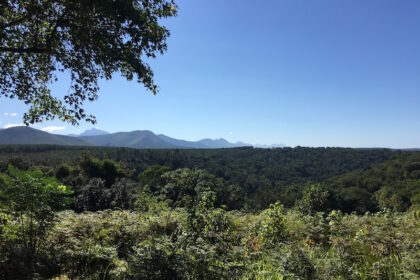
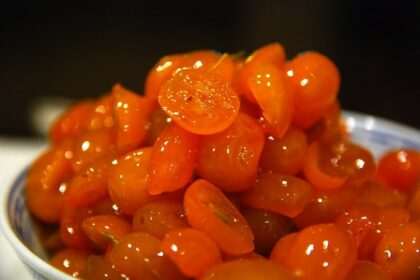
Nice!! The colder the temperature, the better the icewine — it’s all about the quality..
Yes, Indian Cuisine Edmonton, Canada’s cold winters sure add to the quality of icewine!
Wow, great info,
Thanks for sharing.
Kind Regards
Fotograf Brasov
You’re most welcome; thanks for reading!
Fascinating learning about this type of wine. Hope to one day be able to visit there and taste it. Thanks
It’s definitely worth the visit!
Amazing! Great info!
Glad to hear it; thanks!
a complete and good post and can adding knowledge about icewine. Thank you for the information
Glad you enjoyed it! Thanks for your comment.